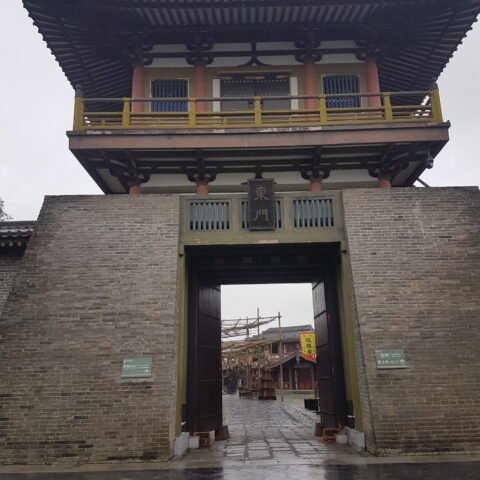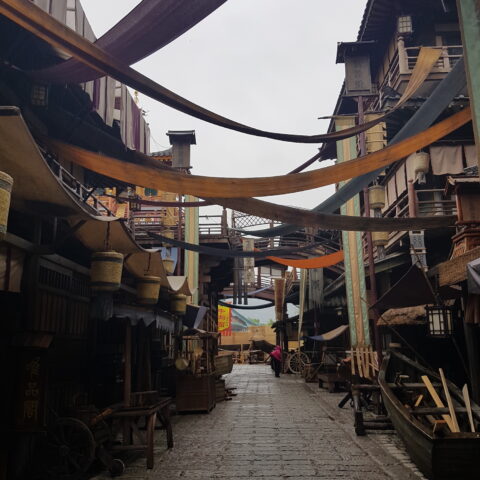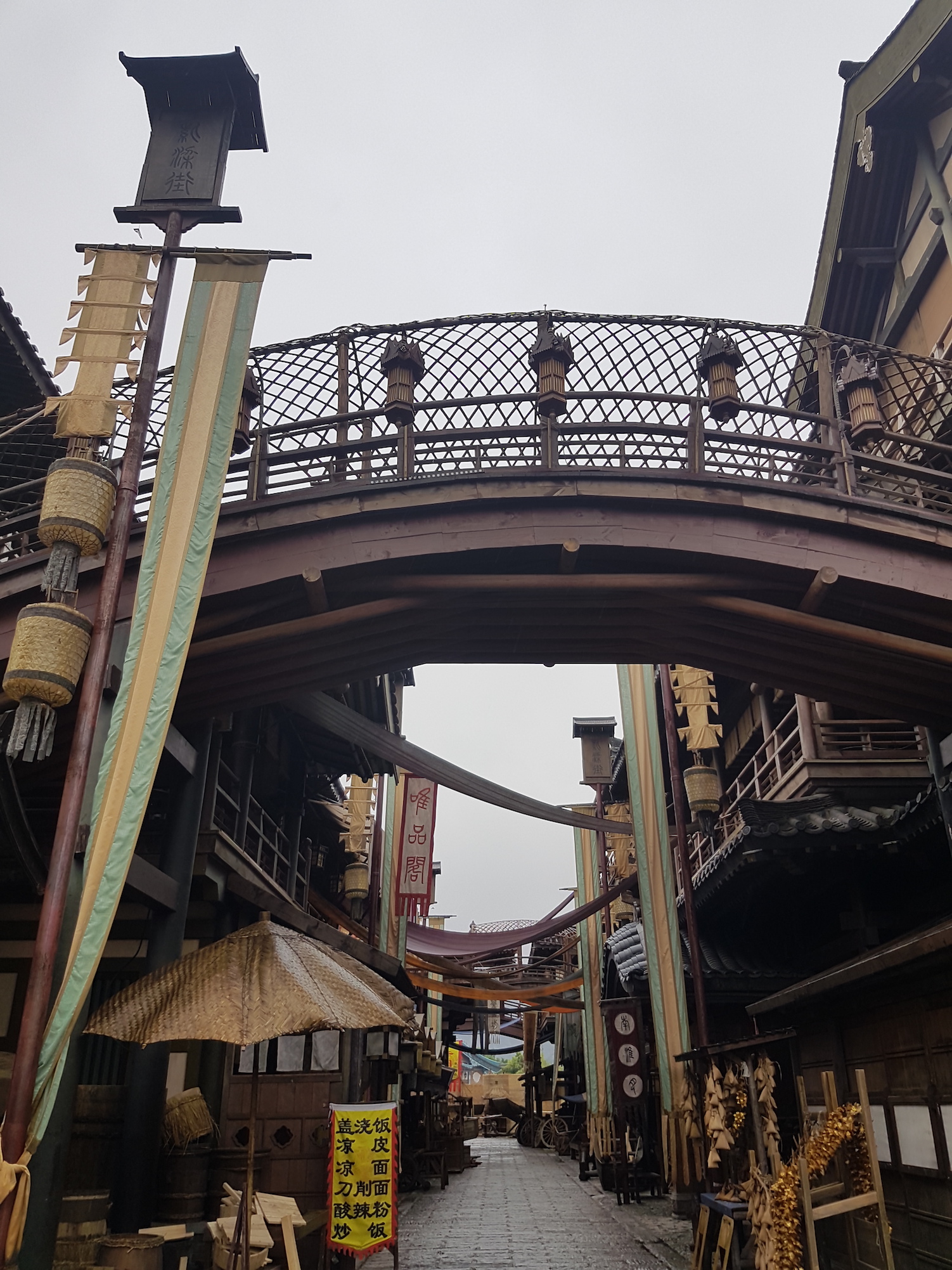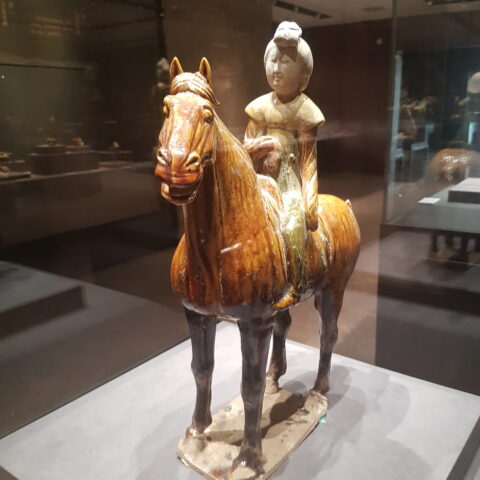Literary Jianghu Project Launch
Earlier this week, I launched my project, LiteraryJianghu / 江湖书斋, a series of digital work that I’m creating to engage with the wuxia martial arts genre and related traditions.
For the first stage of this project, which will take place over the next two months, I’ll be creating some translations, photo essays, and other multimedia content to share on my website, my Twitter and Instagram accounts (@yilinwriter for both), and possibly on other online channels as well. You can read about any project updates on its dedicated page here or on Twitter/Instagram using the #LiteraryJianghu and #江湖书斋 hashtags.
I’m excited to launch my project, #LiteraryJianghu / #江湖书斋, a series of #DigitalOriginals content (translations, photo essays, etc) that I’m creating to engage with the wuxia martial arts fiction genre and related literary traditions. Thank you @CanadaCouncil for the support.
— Yilin Wang (she/they) #LiteraryJianghu (@yilinwriter) August 2, 2020
Tang Chuanqi tales 唐传奇
Today, I’m sharing the first piece that I created as a part of this project. Over the past few days, I completed a creative translation of a Tang dynasty chuanqi tale, “The Woman in the Carriage” 车中女子.
This is my first attempt at translating prose from Classical Chinese. Although the original text comes across as very archaic to a modern reader, it was meant to be read as a legend or record of the times. Therefore, I have translated the text into very direct modern English. As a writer rather than an academic, I have taken a more liberal and creative approach to translation.
Chuanqi, a short narrative form written in Classical Chinese and practiced mostly in the Tang dynasty, often explores topics such as love, supernatural beings (deities and yaoguai), and history. A number of chuanqi stories are centered around the daily life of xiake, vigilante heroes, along with moments of romance, adventure, and strange happenings.
The characters, tropes, setting, and plots of chuanqi stories have all been heavily influential on the best-known and representative modern wuxia novels that dominate the popular imagination and understanding of the genre. Wuxia novels written in the 20th century by authors such as Jin Yong 金庸, Huanzhulouzhu 还珠楼主, and Liang Yusheng 梁羽生, who are sometimes known collectively as the “New School” of wuxia writers 新武侠, often make direct or indirect allusions to the characters, world, and tropes of these older “wuxia” chuanqi tales.
Some of the short stories I’m currently working on also draw on the chuanqi genre for inspiration, and I look forward to sharing more details about that in the future as well.
Translated Tang Chuanqi: “The Woman in the Carriage” 车中女子
A chuanqi originally recorded in Yuan Hua Records《源化记》and later compiled in Extensive Records of the Taiping Era 《太平广记》
Translated by Yilin Wang
During the Kaiyuan era of the Tang dynasty, a young man from the county of Wu traveled to Chang’an city to take part in the keju (imperial exams). After arriving in the capital, the scholar spent his free time wandering about the city’s alleys and walled neighbourhoods.
Suddenly, two unfamiliar youths dressed in linen clothes approached him. They bowed deeply with respect and humbleness, but the scholar didn’t recognize them, so he continued onward, assuming that they had mistaken him for someone else.
The scholar ran into the two youths again several days later. They told him: “As locals, we haven’t had a chance to welcome you properly since your arrival. We were planning to invite you over today, so it must be fate that allowed us to meet here.”
The two youths invited him to go with them. The scholar pushed aside his doubts, swayed by their enthusiasm. He followed the youths through a few streets until they entered a narrow alley in the East Market. He trailed them into a clean, refined residence that faced the street.



The youths led him to a raised seat in the main hall, where more than twenty other well-mannered youths had already gathered for a feast. These youths glanced repeatedly at the entrance, as if waiting for the arrival of an important guest.
After noon passed, someone shouted that the one they had been waiting for was finally here. The creaking sounds of carriage wheels grew louder. An elegant carriage, which was followed by several youths, pulled up to the courtyard outside the main hall. The curtain covering the carriage’s entrance swung open, and a gorgeous young woman around seventeen or eighteen years of age stepped out. Her hair was adorned by flowers and jewels, while her robes appeared simple and refined.

She didn’t reply to the bows of respect from the two youths. When the scholar also bowed, she finally greeted the three of them and invited them into the hall. The woman took the seat of honour at the center of the feast, facing the entrance. The two youths and the scholar all bowed to her before they returned to their seats. Another dozen youths dressed in new clothes each bowed to her before they took the seats for those who had lower ranks.
More fresh, delicious dishes were added. After several rounds of drinking, the woman turned to the scholar and raised her cup. “The two youths have spoken of you to me before, and I’m delighted to finally meet you. I hear you’re highly skilled. Can you show us what talents you have?”
“I have studied nothing but Confucian classics for most of my life,” he replied humbly. “I don’t know how to sing or play any instruments.”
“No, that’s not what I mean,” the woman replied. “Think carefully. What used to be your strongest skill?”
The scholar pondered for a long moment. “Once, at school, I walked a few steps up the side of a wall. I haven’t performed any other feats.”
“That’s what I’m referring to,” she replied. “Can you show us?”
The scholar ran up the side of a wall, walking a couple steps before landing back on the ground.
“It’s a difficult feat indeed,” she replied.
Turning to the seated youths, she gestured them to show their skills as well. Each of them rose and bowed to her in turn. Some scuttled up and down walls. Others swung around in mid-air while gripping ceiling beams. They flocked about like birds, performing dexterous feats with speed and grace. The scholar gasped, stunned and unnerved by their skills. A moment later, the woman rose, saying farewell before she departed. The scholar sighed as he left, his heart heavy with unease.
A few more days passed. The scholar met the two youths on the street again.
“May we borrow your horse?” They asked.
“Yes,” he said.
On the next day, the palace announced the news that it had incurred a theft. The guards couldn’t catch the thieves, but they managed to track down the horse that carried the stolen goods on its back. After searching around for the horse’s owner, they found the scholar and arrested him, dragging him to the Palace Affairs department for questioning.
A guard led the scholar through a prison cell gate and shoved him in the back. He rolled over and fell into a deep pit. He climbed back onto his feet and glanced up. The ceiling of the cell was more than seven meters tall. The only opening was a tiny gap at the edge of the ceiling, barely a few inches wide.
On the next day, at breakfast time, a rope dropped down through the tiny opening. It held a small container of food. He devoured it, feeling famished. The rope withdrew immediately after he finished eating. As night fell, the scholar whimpered alone in the darkness. But no one was here to listen to his rants about all the injustices and mistreatments he had suffered.
The scholar suddenly glimpsed a movement in the darkness. Something dived towards him like a swift bird. The shadowy outline of a person neared him, reaching out with a hand. “You must be terrified, but you don’t need to worry as long as I’m here.” The voice belonged to the woman in the carriage who he had met days prior.
“I’m here to rescue you,” she said, tying him onto her back with pieces of silk. Then she leaped into the air, soaring upwards, flying higher and higher, across the palace and city walls. She finally landed when they were more than ten miles beyond the city gates. “You should return to Jiang Huai,” she said to the scholar. “Your plans to take the imperial exams and pursue a government post will have to wait.”
The relieved scholar escaped back to Wu County on feet, begging for food and shelter along the way. He never dared again to return to Chang’an for the imperial exams, forever giving up his aspirations of pursuing a scholarly title or government post.
Thank you to the Canada Council for the Arts for supporting the first stage of the #LiteraryJianghu project.
If you’ve enjoyed following this project and would like to show your support, please consider buying me a virtual cup of tea on Ko-Fi.


She used him as a scapegoat AND rescued him! I love this story, thank you for putting into a language I can read.